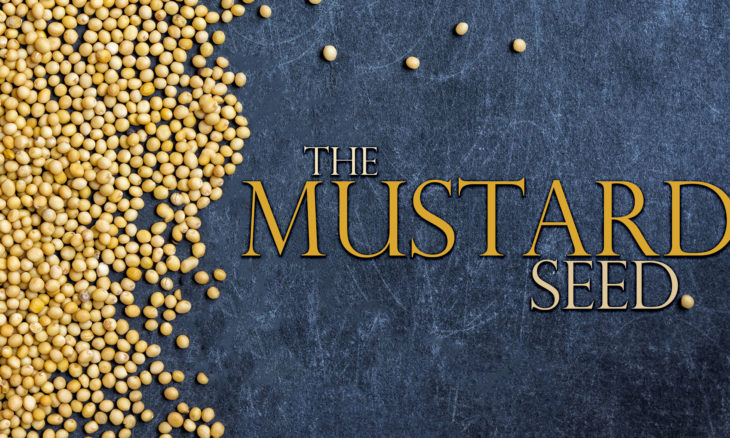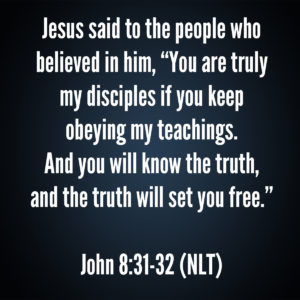What Exactly Is Mustard Seed Faith? (Part 1 )

I have heard a good many sermons on “The Mustard Seed,” but always it has revolved around the idea of us gaining stronger faith for different things in our lives, from the need and desire for healing, to financial provision, to preaching the gospel. But what if there was more to the whole “Mustard Seed” idea that was meant to bring us into a new dimension in the spirit?
So let’s unpack the various passages in the four gospels in which Jesus taught on the Mustard Seed. The first is in the gospel of Matthew. As a back drop, Jesus has just taught on probably the most important parable which is “The Sower & The Seed” which, in a nutshell, deals with the idea and principle of sowing and reaping. Why is this important? Because it is in the context of of this principle that the “Mustard Seed” is brought up. What we invest in will always reap a harvest whether it is of selfishness or godliness.
Matthew 13:31-32
Here is another illustration Jesus used: “The Kingdom of Heaven” is like a mustard seed planted in a field. It is the smallest of all seeds, but it becomes the largest of garden plants and grows into a tree where birds can come and find shelter in its branches.”
Jesus does not yet talk about moving mountains when dealing with Mustard Seed faith, but of the Kingdom of God which is paramount to the object of great faith. The idea of the kingdom is God’s authority in ones life and how we either submit to it or resist it.
Let’s also be clear about the nature of the Mustard Seed. Seeds, regardless of their kind like apples seeds, pears or another seed, have in them the genetic make-up of all they can become before they are planted. Secondly, their application determines how much of their potential will be realized. Jesus said that although the mustard seed is one of the smallest seeds it has great potential.
This is so important because Jesus is using the creation of seeds to illustrate that we all have been created with great potential as human beings, regardless of how small we may feel we are. Our potential depends on the way we are planted and how we are maintained. If, like any seed, we are not watered and receive good sunlight we will be fortunate if we survive regardless of whether the environment is good or bad. Secondly, if our environment is good, our soil is rich, our ground is kept from weeds and parasites we will produce all that we were designed to produce. However if our environment is poor soil, little or no water, without weeding, we again will be fortunate if we survive.
Seeds are designed to do the following: 1) They are designed to “CHANGE” from what they are to what they were designed to be. 2) They are designed to “GROW” from what they are to something much bigger. 3) They are meant to “PRODUCE” more of itself. All these three elements are imbedded inside the nature and structure of seeds and are also imbedded in us when Christ becomes our Lord and savior. To embrace a theology that doesn’t include these three things does not embrace what Jesus taught about the Mustard Seed.
The next occurrence that the Book of Mathew presents is about Spiritual “AUTHORITY” which the believer has from God. In this occurrence the disciples received their first commission and anointing from Jesus to go ahead of Jesus and preach the gospel and do miracles. They experienced the ability to lay their hands on the sick and they recovered, to cast out demons and people were set free without Jesus being present. However, in this occurrence they found themselves wanting and were unable to cast a demon out of a boy who was tormented.
If you read the whole story Jesus comes up to a crowd that had gathered and found out his disciples were arguing with Jewish leaders and not being able to cast this seemly powerful demon out of this boy. When we get into arguing about how to move in faith rather than just moving in the faith we have, we discover our faith is more in ourselves than in the God who supplies.
Matthew 17:20
“You didn’t have enough faith,” Jesus told them. “I assure you, even if you had faith as small as a mustard seed you could say to this mountain, ‘Move from here to there,’ and it would move. Nothing would be impossible.”
Jesus identifies the problem his disciples had in trying to do deliverance, and I believe it often ours as well. We lack the real conviction of who God says he is and look for some emotional feeling inside us, which we think is faith. We make all kinds of excuses why we don’t have power in God, or worse, we don’t attempt to move in real faith lest we discover what kind of faith we don’t have. I am convinced we don’t attempt to do things like laying our hands on the sick because we are afraid of failing, we don’t want to identify people that are either demon possessed or oppressed because then our lack of faith would be exposed.
Jesus was attempting to reveal the hidden truth of the kingdom to his disciples. He was saying, “Get your belief in the authority of God straightened out, and then understand as we rely in and on the authority of God we can do exploits in the name of Jesus.
The third time Matthew records Jesus talking about Mustard Seed faith he is using it with regards to OFFENSE & FORGIVENESS”. Peter, wanting to look spiritual, asks Jesus a question about forgiving others when they sin against us. Jesus had just taught about how to handle sinful behavior by other believers. Peter surely wanted to look mature and spiritual in front of his fellow disciples. It appears that even people who are very close to Jesus personally can still fall into pride. Look how Jesus answers Peter.
Matthew 18:21-22
Then Peter came and said to Him, “Lord, how often shall my brother sin against me and I forgive him? Up to seven times?” [22] Jesus said to him, “I do not say to you, up to seven times, but up to seventy times seven.” (490 times)
In all three of these passages Jesus never mentions “Mountain Moving Faith,” but rather he deals with Kingdom Authority and if we are rightly related to it. Having “Faith in God,” not so much faith in ourselves, to move supernaturally like with demonic oppressed people. And finally having “Faith To forgive”.
In the next article with this same tile I will continue to unpack the idea and power of “Mustard Seed Faith”.
Questions:
1) How do you relate and practice submission to God’s authority in the kingdom of God? Are you seeking his kingdom first or is that in second or third place? ( Mt 6:33)
2) Are you relying on your strength or God’s when you act in faith? Trusting God more than trusting yourself is not relying on your own understanding (Pr 3:5)
Studying to show ourselves approved by God,
Pastor Dale




Leave a Comment